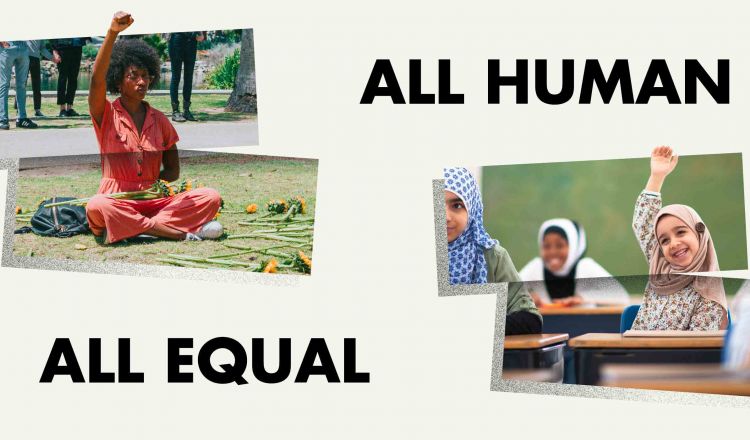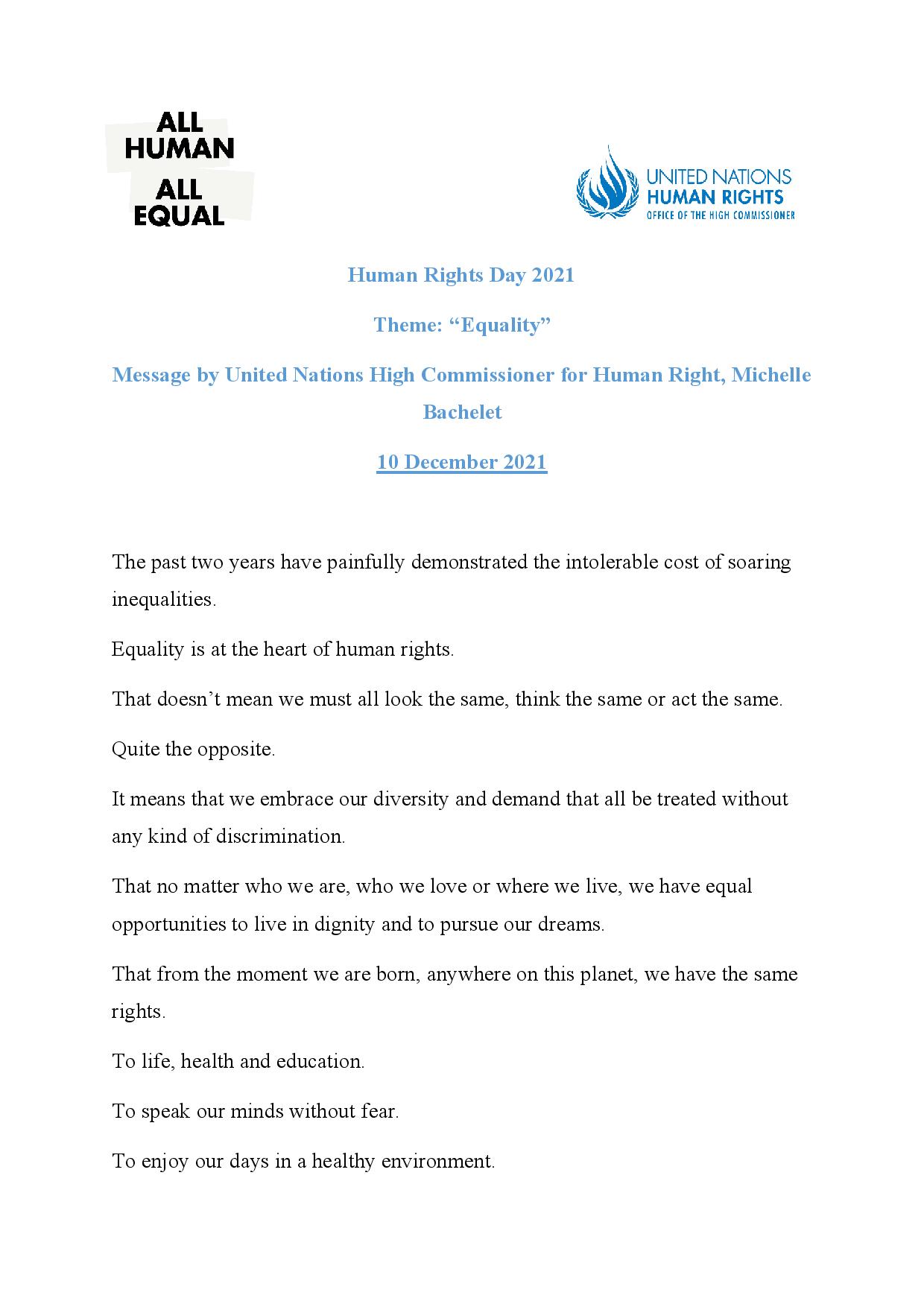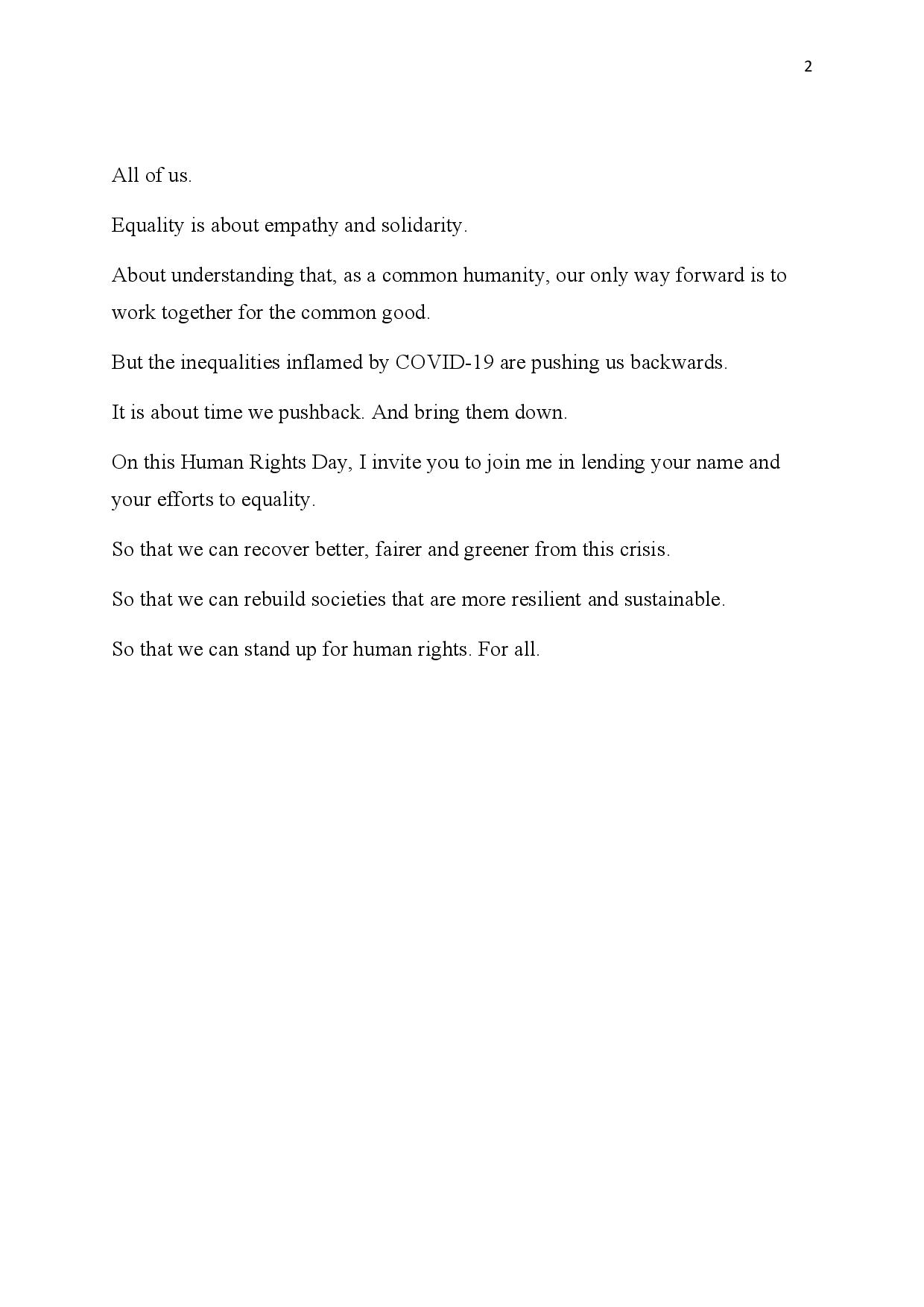Human Rights Day 2021: All Human, All Equal
2021-12-10 10:33

Every year on 10 December, the world celebrates Human Rights Day, the very day when, in 1948, the United Nations General Assembly adopted the Universal Declaration of Human Rights.
The Declaration consists of a preamble and 30 articles that set out a broad range of fundamental human rights and freedoms to which all of us, everywhere around the world, are entitled. It guarantees our rights without distinction of nationality, place of residence, gender, national or ethnic origin, religion, language, or any other status.
The Declaration was drafted by representatives of all regions and legal traditions. It has over time been accepted as a contract between Governments and their peoples. Virtually all States have accepted the Declaration. It has since served as the foundation for an expanding system of human rights protection that today focuses also on vulnerable groups such as persons with disabilities, indigenous peoples and migrants.
Equality in dignity and rights for all in opportunities and outcomes for fairer and inclusive societies
This year’s Human Rights Day theme relates to “Equality” and article 1 of the Universal Declaration of Human Rights – “All human beings are born free and equal in dignity and rights”.
The principles of equality and non-discrimination are at the heart of human rights. Equality is aligned with the 2030 Agenda and with the UN approach set out in the document Shared Framework on Leaving No One Behind: Equality and Non-Discrimination at the Heart of Sustainable Development. This includes addressing and finding solutions for deep-rooted forms of discrimination that have affected the most vulnerable people in our societies.
Equality, inclusion and non-discrimination, in other words a human rights-based approach to development, is the best way to reduce inequalities and resume our path towards realising the 2030 Agenda.
United Nations High Commissioner for Human Rights Michelle Bachelet's message to mark Human Rights Day 2021, on December 10.












